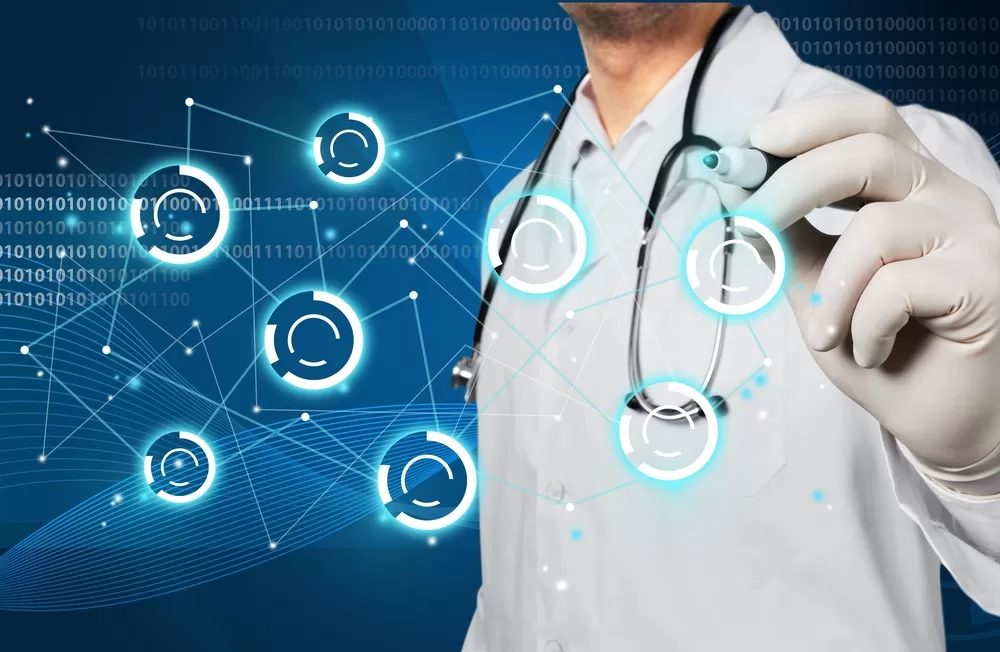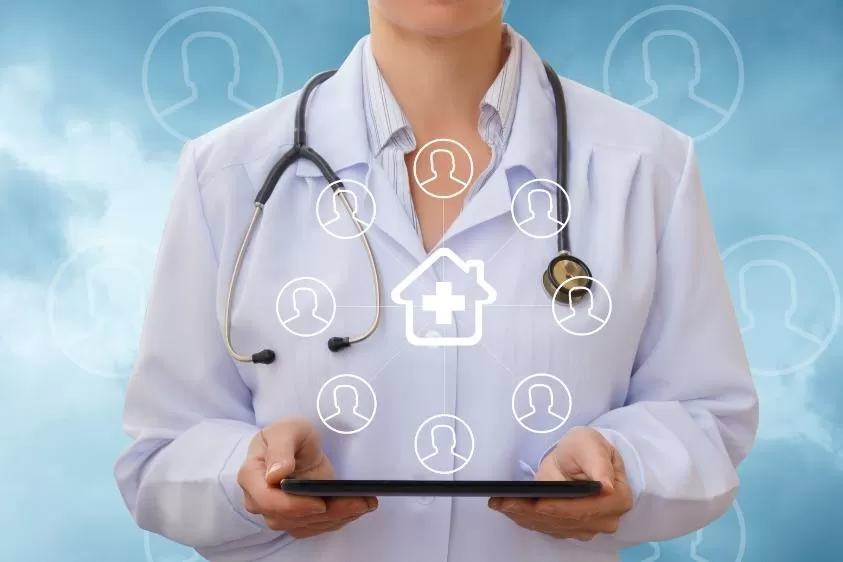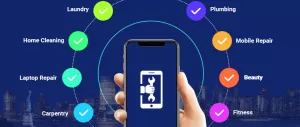Written By:
Scott McAuley
Scott is the IT Director of Texas Management Group, and has been in the IT industry for 25 years.
In today’s fast-paced healthcare environment, staying ahead requires more than just excellent patient care—it demands seamless technology integration.
Imagine transforming your practice into a powerhouse of efficiency and patient satisfaction. This isn’t just a dream; it’s what Healthcare IT Support can make a reality.
In this article, we’ll explore how the right healthcare IT support can transform your practice, from streamlining operations to enhancing patient experiences.
Get ready to discover actionable insights that can elevate your practice to new heights, making you not just a healthcare provider, but a leader in your field.
Key Takeaways
- Healthcare IT support ensures enhanced data security, keeping patient information safe and ensuring compliance with HIPAA and other regulations.
- Streamlined patient records via EHRs centralize data, improving access and reducing errors, leading to better, more efficient care.
- Boosted telemedicine capabilities enable remote consultations and patient monitoring, improving access to care and expanding practice services.
- Proactive IT issue resolution minimizes disruptions by detecting and addressing technical problems before they impact daily healthcare operations.
- Scalable IT solutions adapt as your practice grows, ensuring seamless expansion without compromising efficiency or increasing costs.
Table of Contents
What is Healthcare IT Support?

Healthcare IT support focuses on managing and maintaining the technology systems that healthcare organizations rely on.
This includes everything from traditional IT systems to cloud-based solutions, ensuring they run smoothly and securely so healthcare providers can deliver quality care.
Unlike general IT, healthcare IT requires expertise in industry-specific technologies and regulations, such as managing electronic health records (EHRs) and supporting telemedicine platforms.
Healthcare IT support also drives digital transformation, integrating tools like data analytics and cloud solutions to improve decision-making, workflows, and patient care.
Key Responsibilities of Healthcare IT Support:
| Responsibility | Description |
|---|---|
| System Management | Ensures the continuous operation of IT systems, including EHRs, networks, and databases. |
| Data Security | Implements security measures to protect sensitive patient data from breaches, in compliance with HIPAA. |
| Technical Support | Provides troubleshooting and technical assistance to healthcare staff, minimizing downtime. |
| Digital Transformation | Integrates new technologies and innovations to improve healthcare delivery and operational efficiency. |
| Regulatory Compliance | Ensures that IT systems meet all relevant healthcare regulations and standards. |
10 Ways Healthcare IT Support Can Transform Your Practice
Healthcare IT support plays a crucial role in this transformation, offering solutions that not only streamline operations but also enhance the overall efficiency and security of medical practices.
Here are the ten ways healthcare IT support can significantly improve your practice, making it more effective, secure, and patient-focused:
| Way | Description |
|---|---|
| Better Patient Care | Quick access to patient data, reducing errors. |
| Enhanced Data Security | Secures data and ensures HIPAA compliance. |
| Increased Efficiency | Automates tasks, saving time and reducing errors. |
| Streamlined Patient Records | Centralizes and simplifies patient data management. |
| Improved Provider Communication | Enables real-time collaboration between care providers. |
| Boosted Telemedicine Capabilities | Supports virtual consultations and remote monitoring. |
| Optimized Resource Management | Efficiently manages staff, equipment, and supplies. |
| Proactive IT Issue Resolution | Resolves issues before they impact care. |
| Scalable Solutions | Adapts IT to your practice’s growth needs. |
| Cost-Effective Solutions | Reduces costs through automation and compliance. |
1. Better Patient Care and Safety
Healthcare IT enables instant, accurate access to patient records via EHRs, minimizing the risk of medical errors. This ensures patients receive the most appropriate care based on their complete medical history.
2. Enhanced Data Security
IT support secures sensitive patient data with encryption, firewalls, and regular system updates. It also ensures your practice stays HIPAA-compliant, avoiding legal issues and breaches.
3. Increased Efficiency
By automating tasks like scheduling, billing, and patient communication, IT support reduces administrative workloads. This boosts productivity and streamlines operations, allowing staff to focus more on patient care.
4. Streamlined Patient Records
EHRs centralize patient information, making it easier to access and manage. These systems integrate with other healthcare tools, ensuring seamless information sharing between departments and providers.
5. Improved Provider Communication
Secure messaging and integrated communication platforms facilitate real-time collaboration among healthcare providers. This reduces the risk of miscommunication and ensures everyone is aligned on patient care plans.
6. Boosted Telemedicine Capabilities
IT support provides the infrastructure for telemedicine, enabling virtual consultations and remote monitoring. This expands access to care and reduces the need for in-person visits, especially in underserved areas.
7. Optimized Resource Management
Advanced IT systems help manage resources like staff, equipment, and supplies more efficiently. By tracking inventory and forecasting demand, your practice can reduce waste and prevent downtime.
8. Proactive IT Issue Resolution
IT support monitors systems continuously, identifying and resolving potential issues before they affect your practice. This minimizes disruptions and ensures your technology runs smoothly around the clock.
9. Scalable Solutions
As your practice grows, IT support offers scalable solutions that adapt to increasing demands. Whether expanding services or adding locations, your technology can grow seamlessly without costly interruptions.
10. Cost-Effective Solutions
By automating processes and improving efficiency, healthcare IT support reduces operational costs. It also helps avoid costly legal issues by preventing data breaches and ensuring compliance with regulations.
Conclusion
Healthcare IT Support is a transformative force that can elevate your practice by streamlining operations, enhancing patient care, and ensuring compliance with critical regulations.
By embracing advanced technologies like cloud-based systems, telemedicine platforms, and proactive IT management, your practice can achieve greater efficiency and security.
Now is the time to invest in Healthcare IT Support to unlock these benefits and position your practice as a leader in the healthcare field.
Take action today to explore tailored IT solutions that can drive your practice forward.
Ready to Transform IT in Your Healthcare Practice?
Dive into our healthcare blogs for expert insights on secure, compliant, and efficient IT support tailored to healthcare. Discover how our healthcare IT solutions can safeguard patient data, streamline operations, and boost productivity.
Contact us today to get specialized IT support for your practice.
FAQ
How Could Technology Help Improve Your Own Health?
Technology improves personal health through fitness trackers, health apps, telemedicine, and personalized health data analysis.
How Did Technology Help Improve the Healthcare System of Society?
Technology has enhanced the healthcare system by streamlining patient records, improving diagnostics, enabling telemedicine, and increasing treatment precision.
What are the Roles and Responsibilities of IT Support Group in Healthcare?
The IT support group in healthcare manages system maintenance, resolves technical issues, ensures data security, and supports software and hardware used by medical staff.
How Does ICT Play a Role in Healthcare?
ICT (Information and Communication Technology) plays a role in healthcare by facilitating electronic health records, telemedicine, data management, and improved patient communication.






